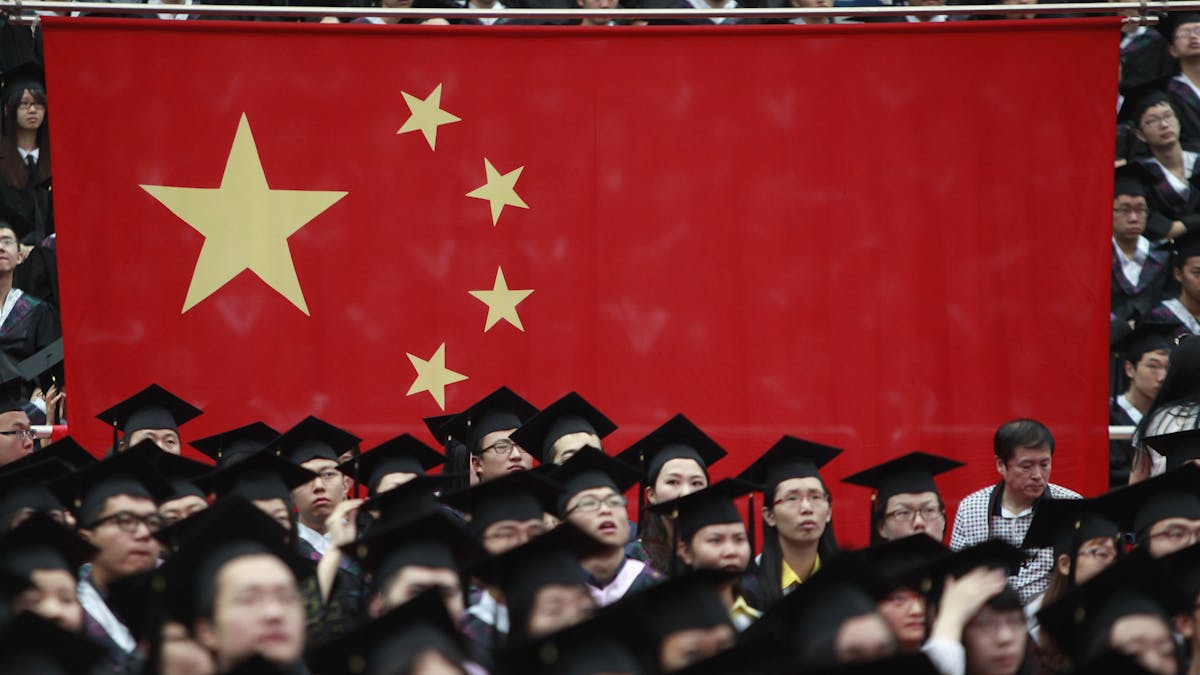
중국 교육부는 지난 화요일 방과 후 과외를 감독하기 위해 새로운 부서를 신설했다고 발표했다. 이는 중국의 급성장하는 사교육 산업에 대한 베이징의 단속조치에 힘을 싣어줄 것으로 보인다.
지난 화요일 교육부 웹사이트의 성명에 따르면, 새로운 부서(교외 과외 감독부)의 신설은 국가의 젊은 세대의 교육 격차에 대한 중국 당국의 우려를 반영한 조치라고 밝혔다.
이전에 로이터 통신은 중국이 중등교육을 받는 아동에 대한 압력을 완화하고 가족 생활비를 낮춤으로써 출산율을 높이기 위한 광범위한 캠페인을 도입할 것으로 보인다고 밝혔다. 이에 일환으로 주말 수업 금지를 포한한 엄격한 규칙이 발표되는 것으로 해석된다.
중국의 교육부는 지난 3월 기자 간담회에서 방과후 과외가 유치원생부터 고등학생까지 학생들에게 높은 압력을 가하고 공교육 시스템을 저해한다고 말했다. 이러한 성명과 함께 당국은 사교육 기업에 과도한 과외 서비스 산업 확장을 줄이라고 명령했다. 학생들의 학업 부담과 방과 후 과외를 줄이는 이중 감축이 올해 중국 교육부의 주요 목표이다.
중국의 대통령 시진핑은 특히 방과 후 과외와 같은 사교육이 시험 성적에 영향을 미치지 않아야한다며, 이러한 사교육의 증가가 아이들에게 큰 스트레스를 야기했다고 말했다.
그러나 중국의 치열한 교육시스템은 이른바 ‘학원’에 대한 학부모와 학생들의 열정을 약화시키지 못할 것으로 보인다. 지난해 중국 전역 대학 입시 시험에 응시한 천 만 명의 학생 중 약 200만 명은 대학에 진학하지 못했다.

최근 중국 인구 조사 데이터에 따르면 신생아 수가 1,200만 명으로 급감하면서 중국 내 인구가 지난 수십 년 대비 가장 느린 속도로 증가하고 있다. 이에 5월 31일, 시진핑 주석의 한 정치국 회의에서 중국인 부부가 최대 3명의 아이를 가지는 것을 허용하는 기념비적인 결정이 내려졌다. 이는 중국의 급격한 인구 고령화에 대한 우려가 담긴 것으로 해석된다.
중국은 온라인 교육 사업에 대한 단속을 확대하는 것도 함께 진행하고 있다. 지난 달, 미국에서 가장 빠르게 성장하고 있는 두 개의 교육기술 스타트업인 텐센트 지원의 교육 플랫폼 위엔푸다오와 알리바바가 지원의 교육 플랫폼 쥬오예방은 경쟁 과다 및 가격법 위반으로 최대 5억 가량의 벌금형이 부과될 예정이다.
또한 미국에 등록된 또 다른 중국 온라인 교육 플랫폼인 GSX 테크에듀는 규제당국이 유치원 및 사립학교 교육을 금지한 후 3~8세 어린이를 위한 유치원 교육 사업을 중단하고 직원의 30%를 해고할 계획으로 알려졌다.
The Chinese Education Ministry announced on Tuesday that it has established a new department to oversee after-school tutoring, marking an further escalation in Beijing’s ongoing crackdown on the country’s burgeoning private tutoring industry.
According to a statement posted to the ministry’s website late Tuesday, the establishment of the new department – titled the Department of Supervision of Off-Campus Tutoring – reflects the central authorities’ concern for the growth of the country’s younger generation.
Reuters previously reported that China plans to introduce tougher rules this month on the sector, which could include banning weekend classes, as part of a broader campaign to ease pressure on school children and boost birth rates by lowering family living costs. In March, the education ministry said at a press conference that the after-school tutoring is adding pressure to pupils in kindergarten through Grade 12 students, while also hampering the public education system. Along with the statement, authorities ordered businesses to cut excessive tutoring services. A double reduction – cutting students’ homework burden and after-school tutoring – is the ministry’s primary target this year.
Chinese President Xi Jinping notably expressed in March that after-school tutoring has caused children great stress, adding that education should not be heavily focused on test scores.
However, China’s highly competitive education system will hardly dampen parents and students’ enthusiasm for the so-called “cram schools”. Last year, out of the ten million students who took the national college entrance exam – “gaokao” in Chinese – about two million failed to advance into college.
Recent census data shows that the national population is growing at its slowest pace in decades with the number of newborns plummeting to 12 million. On May 31, a Politburo meeting chaired by President Xi resulted in the monumental decision to allow each Chinese couple to have up to three children. A rapidly aging population may push China’s decision-makers to further scrutinize the county’s cut-throat education system in the future, adding uncertainty to the sector.
The ministry’s move also comes as Beijing is expanding its wide-ranging Big Tech crackdown on online education. Last month, two of the country’s fastest-growing edtech startups — Tencent-backed Yuanfudao and Alibaba-backed Zuoyebang — were each slapped with the maximum penalty of 2.5 million yuan ($390,692) for violating competition and pricing laws.
![]()



![[페이먼츠 인사이트] 온라인 강의 플랫폼 정산 완벽 가이드: 교육업계 재무팀을 위한 업무 효율화 방안](https://mobiinsidecontent.s3.ap-northeast-2.amazonaws.com/kr/wp-content/uploads/2025/05/21101830/250522_%EA%B5%90%EC%9C%A1-%ED%94%8C%EB%9E%AB%ED%8F%BC-%EC%A0%95%EC%82%B0_01-218x150.png)
![[NFT 실체와 가치 바로 읽기] NFT가 가져온 사고 양극화](https://mobiinsidecontent.s3.ap-northeast-2.amazonaws.com/kr/wp-content/uploads/2023/01/11103631/GettyImages-1350128365-218x150.jpg)
![[아기유니콘 선정기업 2022] 대한민국 1등 수학문제 은행 매쓰플랫 운영사 프리윌린, 임재환 마케팅 리드 인터뷰](https://mobiinsidecontent.s3.ap-northeast-2.amazonaws.com/kr/wp-content/uploads/2022/08/17143251/%ED%94%84%EB%A6%AC1-218x150.jpg)